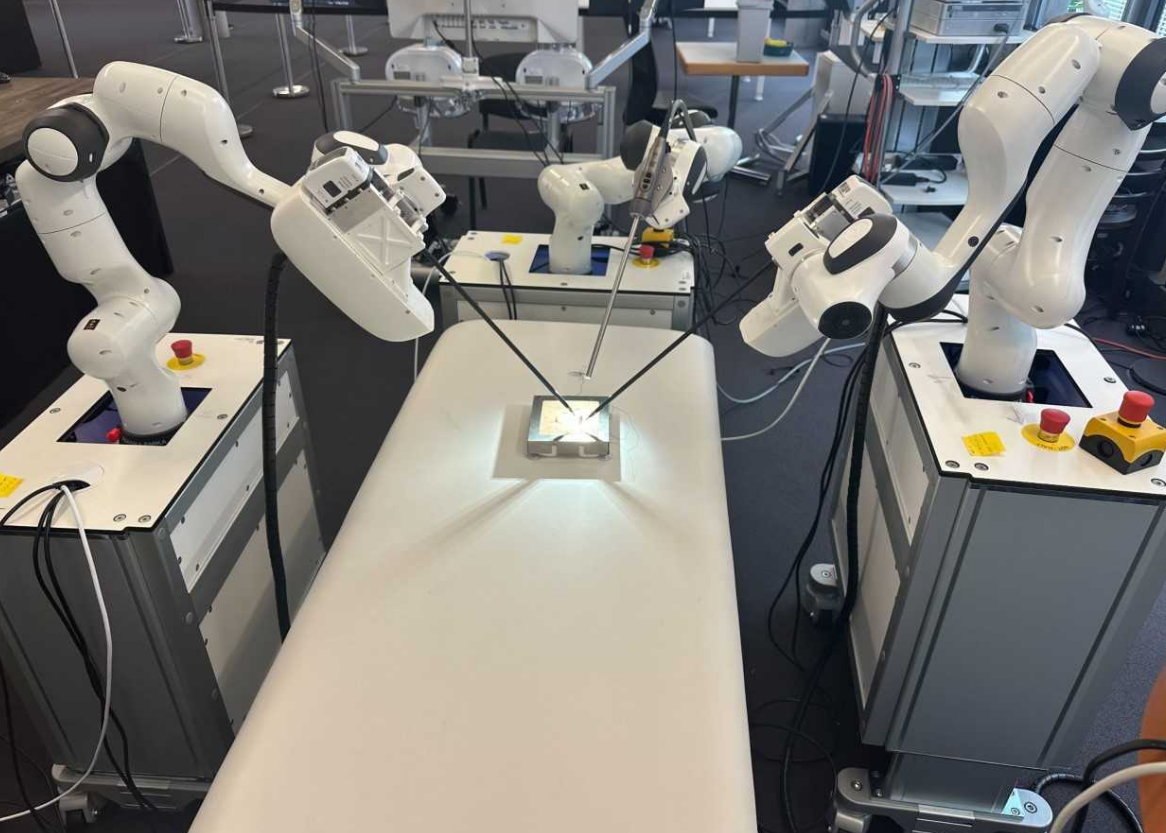Numerical evaluation demonstrating constraint-consistent torque control performance
Abstract
Robotic-assisted minimally invasive surgery (RAMIS) requires precise enforcement of the remote center of motion (RCM) constraint to ensure safe tool manipulation through a trocar. Achieving this constraint under dynamic and interactive conditions remains challenging, as existing control methods either lack robustness at the torque level or do not guarantee consistent RCM constraint satisfaction. This paper proposes a constraint-consistent torque controller that treats the RCM as a rheonomic holonomic constraint and embeds it into a projection-based inverse-dynamics framework. The method unifies task-level and kinematic formulations, enabling accurate tool-tip tracking while maintaining smooth and efficient torque behavior. The controller is validated both in simulation and on a RAMIS training platform, and is benchmarked against state-of-the-art approaches. Results show improved RCM constraint satisfaction, reduced required torque, and robust performance by improving joint torque smoothness through the consistency formulation under clinically relevant scenarios, including spiral trajectories, variable insertion depths, moving trocars, and human interaction. These findings demonstrate the potential of constraint-consistent torque control to enhance safety and reliability in surgical robotics.
